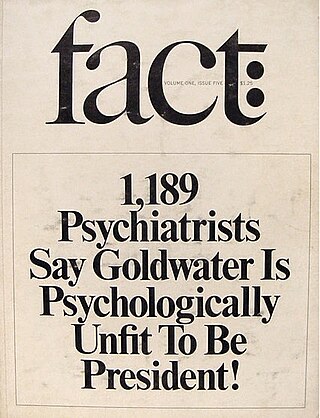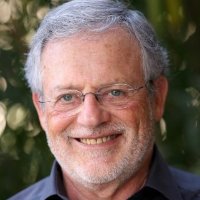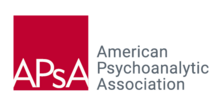Psychoanalysis is a set of theories and therapeutic techniques that deal in part with the unconscious mind, and which together form a method of treatment for mental disorders. The discipline was established in the early 1890s by Sigmund Freud, whose work stemmed partly from the clinical work of Josef Breuer and others. Freud developed and refined the theory and practice of psychoanalysis until his death in 1939. In an encyclopedic article, he identified the cornerstones of psychoanalysis as "the assumption that there are unconscious mental processes, the recognition of the theory of repression and resistance, the appreciation of the importance of sexuality and of the Oedipus complex." Freud's colleagues Alfred Adler and Carl Gustav Jung developed offshoots of psychoanalysis which they called individual psychology (Adler) and analytical psychology (Jung), although Freud himself wrote a number of criticisms of them and emphatically denied that they were forms of psychoanalysis. Psychoanalysis was later developed in different directions by neo-Freudian thinkers, such as Erich Fromm, Karen Horney, and Harry Stack Sullivan.

The American Psychological Association (APA) is the main professional organization of psychologists in the United States, and the largest psychological association in the world. It has over 157,000 members, including scientists, educators, clinicians, consultants, and students. It has 54 divisions, which function as interest groups for different subspecialties of psychology or topical areas. The APA has an annual budget of around $125 million.

A psychologist is a professional who practices psychology and studies mental states, perceptual, cognitive, emotional, and social processes and behavior. Their work often involves the experimentation, observation, and interpretation of how individuals relate to each other and to their environments.
Richard A. Isay was an American psychiatrist, psychoanalyst, author and gay activist. He was a professor of psychiatry at Weill Cornell Medical College and a faculty member of the Columbia University Center for Psychoanalytic Training and Research. Isay is considered a pioneer who changed the way that psychoanalysts view homosexuality.
The International Psychoanalytical Association (IPA) is an association including 12,000 psychoanalysts as members and works with 70 constituent organizations. It was founded in 1910 by Sigmund Freud, from an idea proposed by Sándor Ferenczi.

Charles William Socarides was an American psychiatrist, psychoanalyst, physician, educator and author. He focused much of his career on homosexuality, which he believed could be altered. He helped found the National Association for Research & Therapy of Homosexuality (NARTH) in 1992 and worked extensively with the organization until his death.

The Austen Riggs Center is a psychiatric treatment facility in Stockbridge, Massachusetts. It was founded by Austen Fox Riggs in 1913 as the Stockbridge Institute for the Study and Treatment of Psychoneuroses before being renamed in honor of Austen Riggs on July 21, 1919.

Timeline of events related to sexual orientation and medicine
The American Academy of Psychodynamic Psychiatry and Psychoanalysis (AAPDPP) is a scholarly society including psychiatrists interested in all aspects of psychodynamic psychiatry.
The Boston Psychoanalytic Society and Institute (BPSI) is a psychoanalytic research, training, education facility that is affiliated with the American Psychoanalytic Association and the International Psychoanalytic Association. There were no psychoanalytic societies devoted to Sigmund Freud in Boston prior to his visit to Worcester, Massachusetts in 1909, though after 1909 there were individuals interested in Freud's writings, including James Jackson Putnam, L. Eugene Emerson, Isador Coriat, William Healy, and Augusta Bronner.

The Goldwater rule is Section 7 in the American Psychiatric Association's (APA) Principles of Medical Ethics, which states that psychiatrists have a responsibility to participate in activities contributing to the improvement of the community and the betterment of public health, and when they are asked to comment on public figures, they refrain from diagnosing, which requires a personal examination and consent. It is named after former US Senator and 1964 Republican presidential nominee Barry Goldwater.
Danielle Knafo is an American clinical psychologist, psychoanalyst, and author. Born in French Morocco and raised in Pennsylvania she is now a professor of psychology and psychoanalysis. She is a prolific author, and a popular speaker. She is also a professor at Long Island University-Post in its clinical psychology doctoral program. She writes and lectures on many subjects, including creativity, trauma, psychosis, sexuality and gender, and technology.

H. Shmuel Erlich is an Israeli psychoanalyst, organizational consultant and psychologist of clinical psychology. Since 1990 he has been professor of the Sigmund Freud Chair at the Hebrew University of Jerusalem. In 2005 he became emeritus. Erlich is one of the spiritual fathers of the Nazareth-Conferences.
The New Center for Psychoanalysis is a psychoanalytic research, training, and educational organization that is affiliated with the American Psychoanalytic Association and the International Psychoanalytic Association. It was formed in 2005 from the merger of two older psychoanalytic organizations, the Los Angeles Psychoanalytic Society and Institute (LAPSI) and the Southern California Psychoanalytic Institute and Society (SCPIS), which had been founded as a single organization in the 1940s and then split around 1950.
Psychoanalytic institutes and societies in the United States are often linked together, though a distinction may be made between the functions of the institutes and the societies. Some local psychoanalytic organizations have both words in their title while others have only one or the other.
The Psychoanalytic Center of California (PCC) is a psychoanalytic institute in Los Angeles, California, that emphasizes psychoanalytic approaches based on the work of Melanie Klein, Wilfred Bion, the British Object Relations School, and other theorists in the Kleinian traditions. It is affiliated with the International Psychoanalytic Association and has been recognized as a component society since 1993.
The Greater Kansas City and Topeka Psychoanalytic Center and Institute, also known as the Greater Kansas City Psychoanalytic Center and Institute (GKCPI), is a psychoanalytic center in Kansas City, Missouri, that comprises several interrelated organizations. Currently these are the Kansas City Psychoanalytic Foundation, the Greater Kansas City and Topeka Psychoanalytic Center (GKCTPC), and the Greater Kansas City Psychoanalytic Institute (GKCPI), also known as the Foundation, the center, and the institute. In the early 2000s, the Greater Kansas City Psychoanalytic Institute merged with the older Topeka Psychoanalytic Society.

Lawrence Hartmann is a child and adult psychiatrist, social-psychiatric activist, clinician, professor, and former President of the American Psychiatric Association (APA). Hartmann played a central role in the APA's 1973 decision to remove homosexuality as a diagnosis of mental illness from its Diagnostic and Statistical Manual. This change decisively changed the modern era of LGBTQ rights by providing support for the overturning of laws and prejudices against homosexuals and by advancing gay civil rights, including the right to immigrate, to adopt, to buy a home, to teach, to marry, and to be left alone.
Many health organizations around the world have denounced and criticized sexual orientation and gender identity change efforts. National health organizations in the United States have announced that there has been no scientific demonstration of conversion therapy's efficacy in the last forty years. They find that conversion therapy is ineffective, risky and can be harmful. Anecdotal claims of cures are counterbalanced by assertions of harm, and the American Psychiatric Association, for example, cautions ethical practitioners under the Hippocratic oath to do no harm and to refrain from attempts at conversion therapy.








